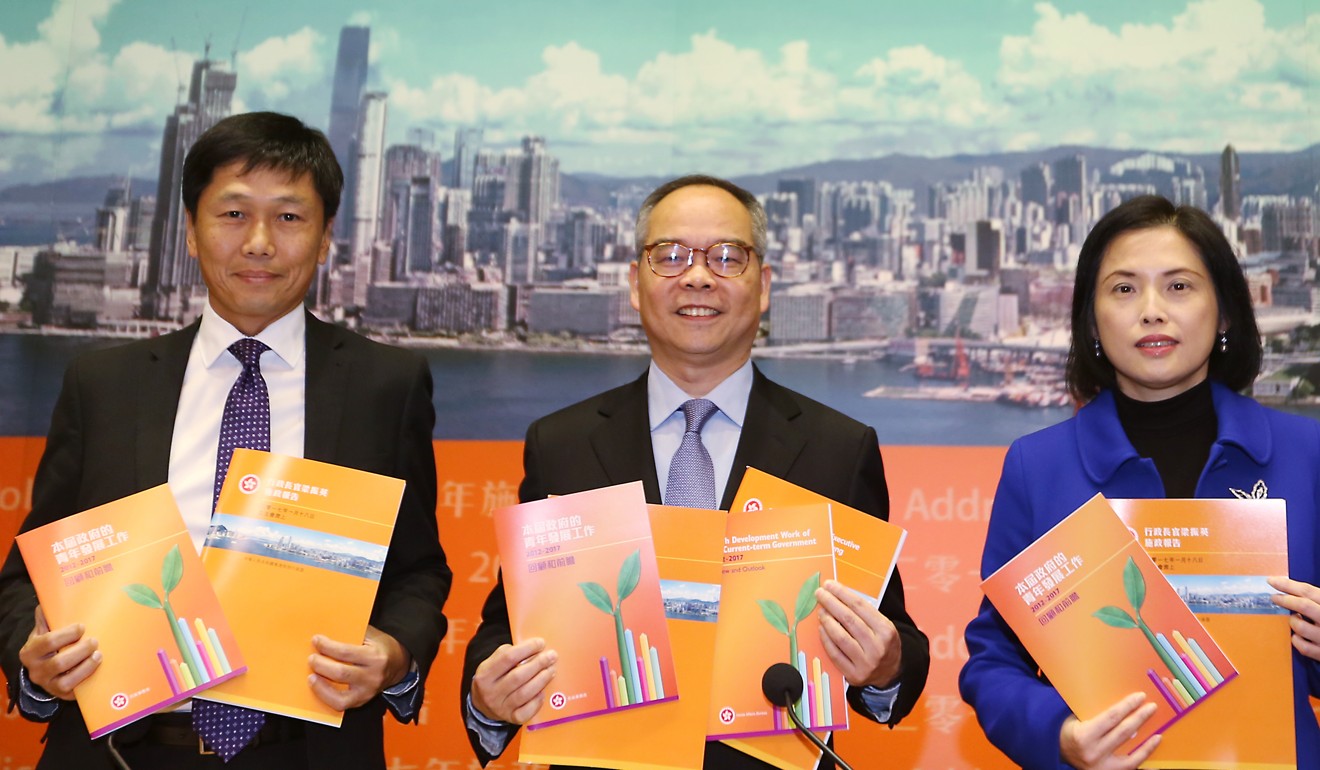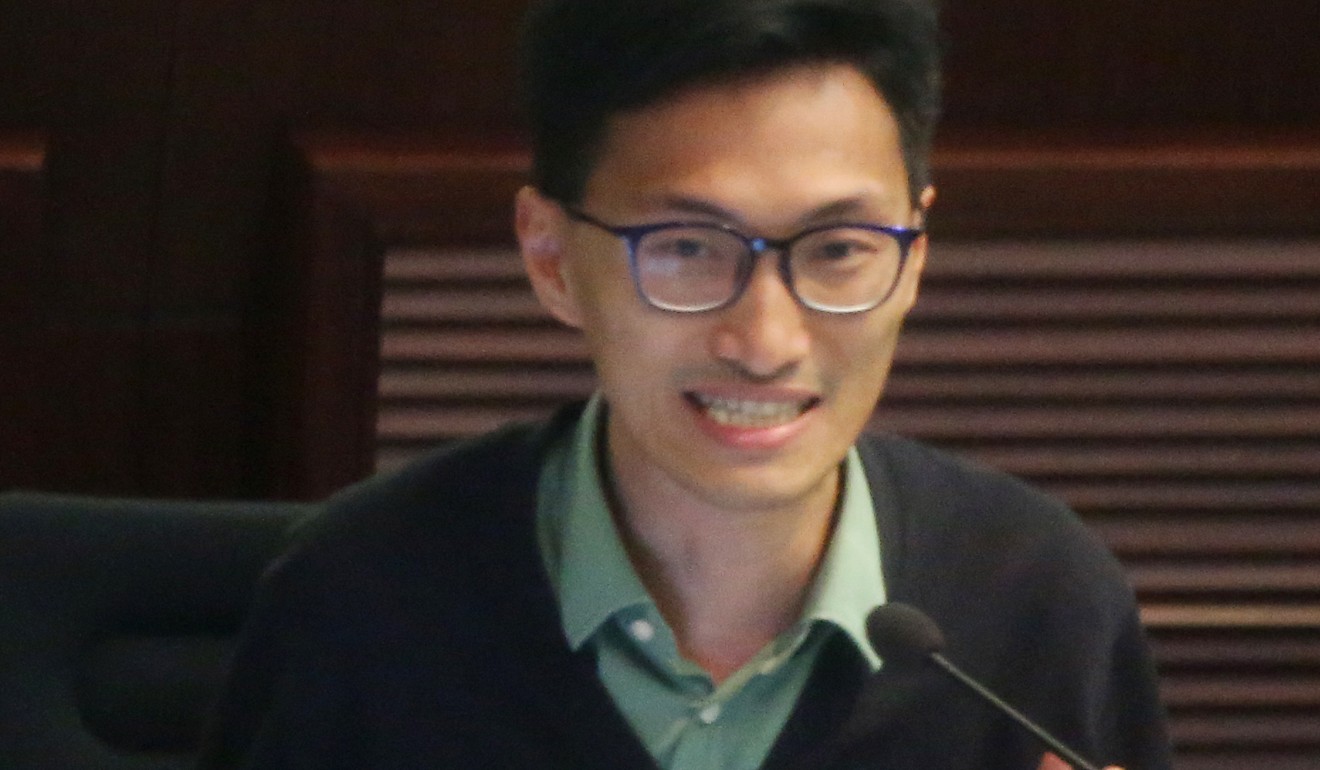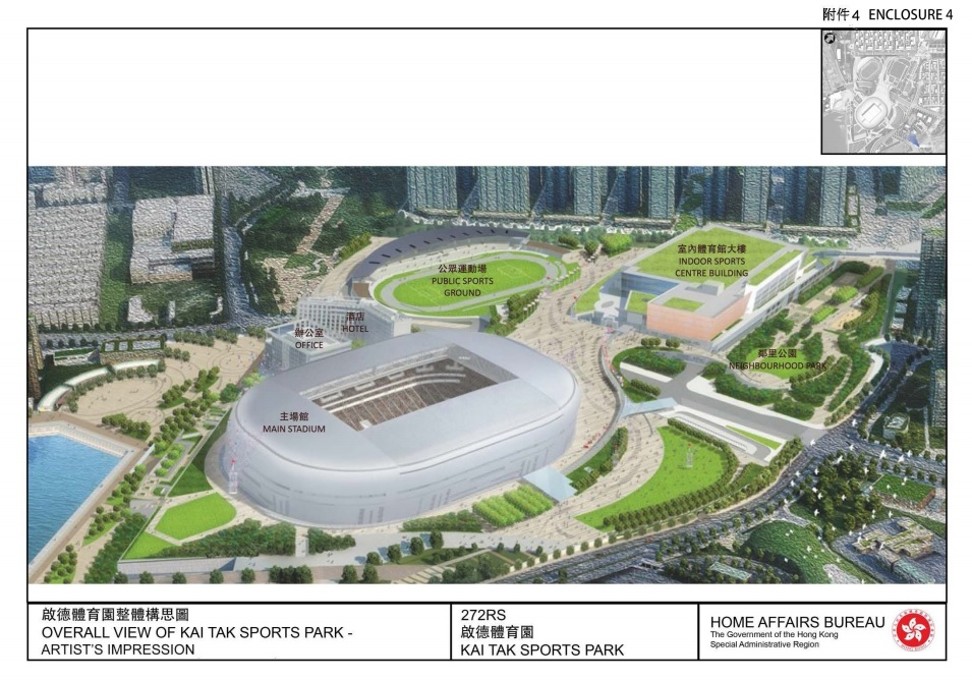
HK$31.9 billion Kai Tak Sports Park won’t be a ‘fat pork’ contract, government insists as lawmakers continue criticisms
As Home Affairs Bureau defend proposals, pan-democrat lawmakers say the massive project is bloated and overblown and government should go back to the drawing board
At the third meeting of the subcommittee on the topic, Betty Fung Ching Suk-yee, permanent secretary for home affairs, insisted the contract was “not going to be ‘fat pork’” for the winning bidder as she defended the Home Affairs Bureau’s recommended ‘Design-Build-Operate’ (DBO) model.
Under the DBO scheme, the winning consortium will have to design and build the sprawling complex, and run its stadiums and retail and dining facilities under a 25-year contract, including a projected five years of construction.
The planned 28-hectare facility on the site of the former airport entails a 50,000-seat stadium for major sports and entertainment events, 10,000-seat indoor arena, 5,000-seat community sports ground, retail and dining space of some 57,000 square metres, a 3,000 square-metre ‘dining cove’, hotel, offices, bicycle track and public open space and more.
Fung said the HAB and their consultants had determined that the DBO model “best suits Hong Kong” and best limited the financial risk to the government, and that the profit margin on construction would only be in the range of two to three per cent. According to HAB financial projections, the operator should make an average profit of HK$200 million a year in the first five years before revenue sharing with the government.
Eddie Chu Hoi-dick of the Land Justice League questioned why the government couldn’t run the park, while Fernando Cheung Chiu-hung of the Labour Party said “by [Fung’s] logic the whole government should be contracted out”. Others questioned the need for a new stadium at all while several likened the project to other ill-fated infrastructure schemes such as the Kai Tak Cruise Terminal and the West Kowloon Cultural District.

“As a former director of the LCSD [Leisure and Cultural Services Department] I’m not going to belittle them,” Fung said, “but they simply don’t have the expertise to run such commercial elements.”
Yeung Tak-keung, the HAB’s sports commissioner, insisted there would be very strict rules governing bidders and that “public and private [bodies] had their own strengths.”
“Hong Kong Stadium is clearly unable to reach our needs for hosting mega events,” he added, “every year we receive many offers [that we can’t accept].”
Radical lawmaker ‘Long Hair’ Leung Kwok-hung said the government was “throwing Hong Kong people’s money into the sea” and said it was like “peeling an onion when we ask you questions.”
He moved that the meeting be adjourned; as it was close to the scheduled adjournment time anyway, no vote was taken, though it did give members the opportunity to restate their concerns at length.

Pan-democrats Lau Siu-lai, Cheung, Chu, Roy Kwong Chun-yu and Kwok Ka-ki supported Leung’s motion, Lau arguing “this will become another Disneyland ... you are just showing us a grand illusion.” She added: “You are trying to do a project that’s out of control, can we start afresh?”
Kwong said he feared the government would use the Sports Park as precedent to include bid incentive schemes in future schemes.
Even those who support the project and opposed the motion to adjourn had reservations.
Michael Tien Puk-sun, until recently of the Pro-Beijing New People’s Party, has been a critic of the project but said he would support it if changes were made to the fee arrangements and penalties for not performing.
“We’ve wasted a lot of time,” said Tien. “We call ourselves an international city ... [but there’s] so many constraints on Hong Kong Stadium. We need another major venue for sports and other mega events [to attract tourists and boost the economy.”
Lau Kwok-fan of the DAB agreed “we should not procrastinate” but still wanted clearer explanations from the HAB about the bid incentive scheme, penalties, and other aspects.
The meeting continues on Saturday. The government hopes to begin work on the project in 2018, with opening scheduled for 2022.


